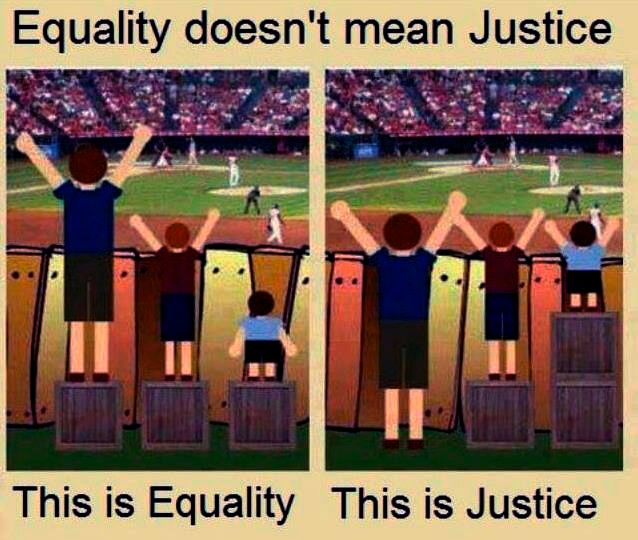
Why We Support Teammates with Dependents (and Why it’s No Longer Part of our Salary Formula)
One of the things we’ve always been interested in doing at Buffer is looking at compensation differently and transparently.
In the latest update of our transparent salaries formula, one key change was that we began to pay teammates more money if they had dependents, or family members who depended on their income.
The formula that we originally came up with offers an extra $3,000 a year for every family member that immediately relies on your income. This can be quite broad—for example, a spouse or partner going through school or out of work, or a grandparent to whom you’re sending money to help with expenses. We trust each teammate to make the decision that feels best for them, no questions asked.
Buffer’s dependents policy
- $3,000 per dependent who depends on your salary
- Can be for spouses, partners, children, grandparents, aunts or uncles, etc.
- Can have as many additional family members as you need
Along with The Good Life Curve, this was one of the elements that got the most questions and comments when we shared the new formula recently.
I wanted to take the time to explain why we originally made it an option for team members to factor into their salaries those who depend on their income—and why we now have a different path, after hearing great insights from many of you.
Why include dependents and family?
Why bring family or dependents into the equation at all?
One of the things both Joel and I experienced growing up in Europe is the idea of supporting families from a government perspective. In Austria, my family got $2,000 in support per year per child, and a similar program exists in the UK for certain levels of income.
We have always felt that was a good thing to do, and as Buffer’s cofounders we now have the opportunity to show support for our team in a similar way.
Raising children, and other familial responsibilities, costs a lot of money. We have an opinion that it’s something we should show support for.
It’s our intuition that $3,000 isn’t quite enough money to incentivize anyone to have children, and that’s not the goal of this stipend. Rather, we want to help our teammates feel taken care of if they happen to have children or others in their family who rely on their income.
This is a partially a selfish, self-serving attempt to take some challenges away from people so they carry fewer worries about money around when they work on Buffer (or do everything else).
We know there are a lot of other circumstances people can be in that might also require support—for instance, student loans, or a mortgage on your house—and we don’t want to dismiss any of those.
In the long term of evolving Buffer’s culture and values, I expect us to tackle many more of the kinds of issues that are a burden for team members.
To start, we picked one dependents because it felt like a common, applicable, useful starting point.
Listening to your feedback: We removed this element from salary
It’s been incredible how many amazing, thoughtful comments and discussion points were raised around this. We’ve been listening to all of them!
After all the conversations we’ve had, we continue to feel it’s the right thing to do to support teammates with these fairly small grants.
But we got a lot of helpful feedback that having this money folded into a person’s overall compensation felt off, as if we were valuing people with family obligations in a different way than other teammates.
Here’s a sampling:
@joelgascoigne @buffer what has family got to do with salary? Does it make me a better employee if I have kids? What if I can’t have them?
— Chris C (@chris_campbell) November 24, 2015i can’t decide, whether i agree with @buffer‘s decision to pay people, who have family more / people who are single less. hm. — Kathrin Folkendt (@kathaka) November 24, 2015
@joelgascoigne @buffer why do you get more for having a family? Kinda discriminates against single people.
— Andy P (@andypngr) November 25, 2015We hear you, and we completely agree.
It doesn’t make sense to pay someone more because of their family circumstances. Especially when it comes to equity—in our existing formula, people with kids or others who depend on their salaries would have gotten more equity, which wouldn’t feel quite right at all.
Therefore, we’ve moved the family element out of the salary formula entirely. It’s no longer part of our formula on our working spreadsheet or represented in our salary calculator.
Instead, we’re adding a new dependents grant into our benefits. We already have a number of perks and benefits that Buffer provides and pays for, and the dependents grant feels like it has a much more reasonable place there.
We’re still developing a process around it, but this will be a yearly grant that any teammate can apply for by sharing their particular family circumstances. (Teammates who were previously receiving this money through the salary formula have already been grandfathered in for this year).
The formula before this change:
(overall base + location base + cost of living)* role value * experience + risk + dependents = salary
The formula after this change:
(overall base + location base + cost of living)* role value * experience + risk = salary
Here’s an example, putting all this together:
An advanced engineer, living in Cape Town, who chooses more equity and has 2 kids and a husband depending on her income, would previously have made this:
- $60,662 x 1.20 + $9,000 + $0 = $81,794
Now this same teammate makes:
- $60,662 x 1.20 + $0 = $72,794
However, she can apply for a dependents grant of up to $9,000 to help support those who are depending on her salary.
We feel we’re painting a clearer picture with this change, and we’d love to hear how it feels to you.
Is this fair?
A question that we feel might remain as we continue to support teammates with these fairly small grants is this one: Is this fair?
We’ve thought about this question a lot, and we’ve come to the conclusion that fair does not always mean equal.
We could pay everyone the exact same wage (something we’ve actually considered in the past!) but we’re not the exact same people. We have different locations, preferences, and life situations. And we believe that those differences should have the opportunity to be reflected in our compensation.
On the whole, Buffer’s goal is to be as generous as possible and take money out of the picture as a concern for any teammate. So for those who face an extra burden from a monetary perspective, we want to be there to support them.
We want to look at compensation with wholeness, empathy and compassion.
This image helps me understand this concept the best:

Dependents is perhaps the first example of our move in this direction, and I have an intuition these changes won’t always feel fair to everyone.
In the future, we’re likely to add more of these elements, like:
- An additional allowance for our “digital nomad” teammates, who incur extra costs by traveling around the world. We want to support people in finding the place where they feel happiest.
- A correction for exchange rates and taxes, which vary greatly by country. (We know, for example, that Buffer team members in France pay a lot of extra taxes that others don’t.)
I know we’ll learn a lot from these experiences.
I’m so grateful for the many people who voiced their opinion on this topic and helped us make what we believe is a better decision here.
This experience has reminded me that being transparent has the amazing benefit of helping you hear from a lot of incredibly smart people. Without them, we wouldn’t have been able to come to this conclusion.
I know our formula remains far from perfect, and it’s invaluable to hear from all of you about how we can make it better for the future.
If you’d be up for it, I’d love to hear your thoughts about this change, how it feels, and what it might be missing. I’m listening!
Try Buffer for free
140,000+ small businesses like yours use Buffer to build their brand on social media every month
Get started nowRelated Articles

In this article, the Buffer Content team shares exactly how and where we use AI in our work.

With so many years of being remote, we’ve experimented with communication a lot. One conversation that often comes up for remote companies is asynchronous (async) communication. Async just means that a discussion happens when it is convenient for participants. For example, if I record a Loom video for a teammate in another time zone, they can watch it when they’re online — this is async communication at its best. Some remote companies are async first. A few are even fully async with no live ca

Like many others, I read and reply to hundreds of emails every week and I have for years. And as with anything — some emails are so much better than others. Some emails truly stand out because the person took time to research, or they shared their request quickly. There are a lot of things that can take an email from good to great, and in this post, we’re going to get into them. What’s in this post: * The best tools for email * What to say instead of “Let me know if you have any questions” a